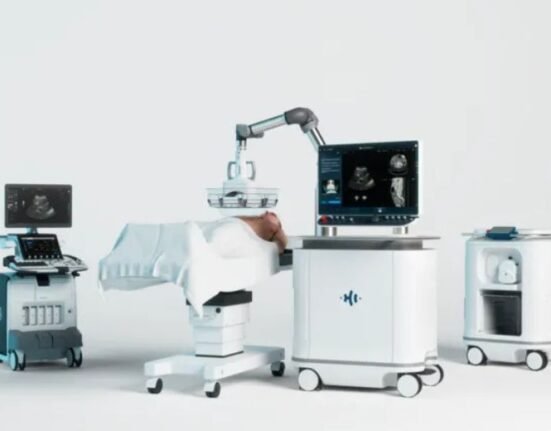HQ Team
September 20, 2024: Researchers at the University of Cambridge have developed a wearable ‘smart choker’ to help people communicate after speech impairments resulting from surgery or conditions such as Parkinson’s, stroke or cerebral palsy.
The device incorporates electronic sensors in a soft, stretchable fabric, and is comfortable to wear around the neck. By incorporating machine learning techniques, the smart choker can also successfully recognise differences in pronunciation, accent and vocabulary between users, reducing the amount of training required, according to a university statement.
Using flexible electronics and artificial intelligence techniques, the choker uses a type of technology known as a silent speech interface, which analyses non-vocal signals to decode speech in silent conditions – the user only needs to mouth the words for them to be captured.
The captured speech signals, or tiny movements in the throat, are then transferred to a computer or speaker to facilitate conversation.
Bamboo-based textile
The choker is made from a sustainable bamboo-based textile, with strain sensors based on graphene ink incorporated in the fabric. When the sensors detect any strain, tiny, controllable cracks form in the graphene. The sensitivity of the sensors is more than four times higher than the existing state of the art.
Smart choker tests showed it could recognise words with over 95% accuracy while using 90% less computational energy than existing state-of-the-art technologies.
“Current solutions for people with speech impairments often fail to capture words and require a lot of training,” said Dr Luigi Occhipinti from the Cambridge Graphene Centre, who led the research. “They are also rigid, bulky and sometimes require invasive surgery to the throat.”
“These sensors can detect tiny vibrations, such as those formed in the throat when whispering or even silently mouthing words, which makes them ideal for speech detection,” said Occhipinti. “By combining the ultra-high sensitivity of the sensors with highly efficient machine learning, we’ve come up with a device we think could help a lot of people who struggle with their speech.”
Most used English words
“On top of that, every person is different in terms of the way they speak, and machine learning gives us the tools we need to learn and adapt the interpretation of signals from person to person,” said Occhipinti.
The researchers trained their machine learning model on a database of the most frequently used words in English, and selected words which are frequently confused with each other, such as ‘book’ and ‘look’.
The model was trained with a variety of users, including different genders, native and non-native English speakers, as well as people with different accents and different speaking speeds.
“I was surprised at just how sensitive the device is,” said Occhipinti. “We couldn’t capture all the signals and complexity of human speech before, but now that we can, it unlocks a whole new set of potential applications.”
Researchers said their smart choker could also be used in other health monitoring applications, or for improving communication in noisy or secure environments.
The results were reported in the journal npj Flexible Electronics.








